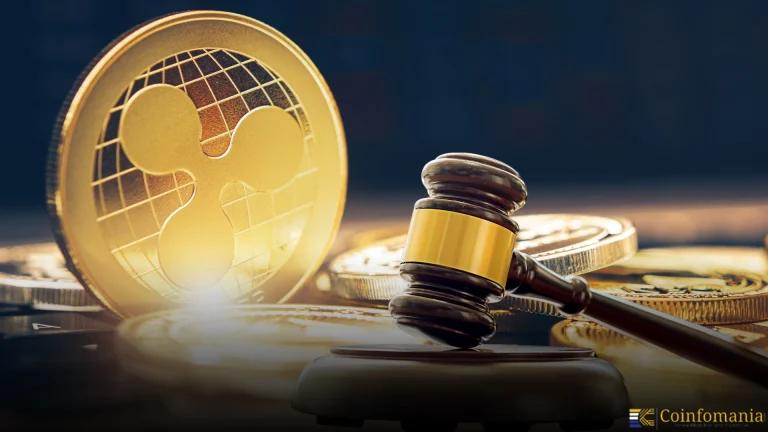Cryptocurrency Regulation in Bulgaria
Bulgaria is abandoning a light-touch anti-money register of virtual-asset service providers (VASPs) to pursue an entire Markets in Crypto-assets (MiCA) licensing regime. The VASP register is still supervised by the National Revenue Agency (NRA) but a draft Crypto-Assets Act that is proceeding through Parliament will attach prudential supervision to the Financial Supervision Commission (FSC) and […]

Bulgaria is abandoning a light-touch anti-money register of virtual-asset service providers (VASPs) to pursue an entire Markets in Crypto-assets (MiCA) licensing regime. The VASP register is still supervised by the National Revenue Agency (NRA) but a draft Crypto-Assets Act that is proceeding through Parliament will attach prudential supervision to the Financial Supervision Commission (FSC) and leave e-money tokens to the Bulgarian National Bank. The change had come into effect on 30 December 2024 when MiCA was supposed to come into use throughout the EU, and the Bulgarian transition period of one year is to be completed on 31 December 2025.
Historical Context
- 2018: Bulgarians adopt the EU Fifth AML Directive (5MLD) to Measures Against Money Laundering Act (MAMLA), requiring the registration of crypto exchanges and custodians with the NRA.
- 6 October 2023: MAMLA amendments broaden the definition of VASP and fit-and-proper requirements of managers to be elected.
- 22 March 2024: Finance Ministry ordinance comes into force; all the VASPs that were listed prior to this date were required to re-apply with full disclosures before 22 May 2024.
- 20 August 2024: Draft Crypto-Assets Act (transposition of MiCA) published to consultation.
- 31 December 2024: The bill was put before parliament by the government; this proposes joint FSC/BNB competence and a 12-month grandfathering period.
- 2025: The crypto industry of Bulgaria plans to go through a full MiCA licensing process, with the draft Act likely to be passed before the mid-year.
Regulatory Framework
The management of Bulgaria is now founded on three levels that are integrated:
MAMLA registration: Every company that transfers, trades, stores and publicly issues crypto-assets must register with the NRA and comply with the rules of customer-due-diligence, record-keeping and suspicious-transaction-reporting.
MiCA harmonization: Draft Act will designate the FSC to become the primary crypto-regulator and will create categories of licences more-or-less analogous to MiCA (exchange, custody, execution, portfolio management, advisory, and placing). The applicants will have to possess their own funds, between 50,000 and 150,000 euros, internal controls, incident-response plans and segregated client wallets.
BNB remit 2: Providers of e-money tokens (stablecoins backed by one fiat currency) fall under both MiCA Title III and Bulgarian Payment Services and Payment Systems Act regulation by the central bank.
The national regulation of the AML introduces a higher level of control over transactions carried out in crypto cash above the amount of BGN 16,000 (= 8000 EUR) and the need to report in 14 days.
Bulgaria Crypto Policies
Legal status: Crypto possession and trade are legal. Digital assets are considered to be intangible property, not legal tender; the invoices have to be paid in Bulgarian lev (BGN) or another approved fiat currency.
Taxation: Gains on crypto disposals by individuals and companies are taxed at the Bulgarian flat rate of 10%; losses only set off other income. Spot trades are not subject to VAT, whereas that of goods or services bought with crypto is.
Mining: There is no particular licence but high power tariffs and grid-stability regulations restrict industrial scale farms.
Exchanges Not only will there be fewer entities on the NRA register after the re-application purge (just 139 entities as of September 2024), but re-applications will also need an FSC MiCA licence or must leave the market by 31 December 2025.
Crypto Innovation Approach
The local developers are attracted to mobile-first platforms that include instant-payment linking, such as BoroPay and Phyre. At the University of Sofia and Plovdiv, there are blockchain labs experimenting with land-registry pilots and agri-supply-chain traceability, and two sandbox projects that were accepted by the FSC in 2024 explore a BGN-backed stablecoin to pay municipal fees and a tokenised green-bond platform.
The industry get-togethers, including the Sofia Crypto Conference, are informal accelerators of start-ups using EU passporting once MiCA licences become available.
Challenges and Issues of Note
- Bank de-risking: Commercial banks are using intensive AML checks and frequently freeze accounts associated with crypto transfer, making VASPs dependent on overseas EMI partners.
- Regulatory churning: The successive amendments to MAMLA, and the quick turnaround of compliance deadlines increase legal expenses of smaller start-ups.
- The lack of consumer literacy, Consumer education has not kept up with retail euphoria; since 2022, the FSC has published several warnings regarding market-abuse and scam risks.
- Data-localisation debate – The draft Act is considering on-shore storage of the customer ledgers, which raises concerns of cost to cloud-native companies.
Important Regulatory Trends and Prospects
- Licence applications, fees and second-tier rulebooks on ICT security, complaints handling, and ESG reporting will be resolved by the Crypto-Assets Act (expected in mid-2025).
- Grandfathering clock: NRA-registered VASPs will be allowed to continue operation until 31 December 2025 or until authorisation by the FSC or rejection by FSC, whichever is earlier.
- Travel rule: Bulgarian VASPs are required to provide originator/beneficiary information during the transfer of 1,000 in Bulgarian VASPs due to their act transposing the EU Funds-Transfer Regulation.
- Environmental disclosures. A MiCA Article 7 will provide the basis of secondary legislation that will oblige miners and CASPs to publish their annual energy-consumption data after 2026.
- Passporting an EU Bulgarian licence will enable the issuer to deliver services into the European Economic Area without any additional authorisation.
Conclusion
Bulgaria is quickly transitioning toward complete MiCA supervision after existing solely in a registration-only regime. Companies obtaining FSC licences and enhancing governance, capital and consumer protection will obtain an EU passport and first-mover advantage. The ones which will not comply need to leave or move when the grandfathering period closes at the end of 2025. The compliance race is on.
FAQs
1. Is cryptocurrency a legal tender in Bulgaria?
No. Goods and services should be paid in BGN or other authorised fiat currency, crypto is not considered as a form of money; it is a digital property.
2. Are crypto exchanges required to have a Bulgarian licence?
Yes. Until end-2025 an NRA registration is sufficient, as of end-2025 an FSC MiCA licence is required in order to serve Bulgarian clients.
3. How much capital is needed to get a MiCA licence?
Own-fund thresholds under the draft Act are between 50 000 and 150 000, depending on the offered crypto service.
4. What is the taxation of crypto gains?
Tax is collected at a flat 10 % on realised gains and crypto-to-crypto swaps are taxable events as well.
5. Are VASPs required to maintain Bulgaria servers?
The draft bill is demanding the availability of adequate local data; complete on-shore hosting remains a subject of consultation.
6. Is it legal to mine Bitcoin in Bulgarian?
Yes, but according to the regular business regulations and ecological norms; there is no particular mining permit.
7. Is stablecoin permitted?
Asset-referenced and e-money tokens will be authorized but will be subject to MiCA reserve, governance and disclosures requirements once Title III takes effect on 30 June 2024.
8. Is Bulgaria working on a CBDC?
Bulgarian National Bank joins the European Central Bank exploratory work, but does not have a national digital lev pilot announcement.
9. What is the duration of FSC authorisation?
Guidance notes indicate that a review should be done after six months as long as application is complete and capital is paid-up.
10. What occurs when a foreign exchange disregards MiCA rules?
The platforms that do not acquire EU licence will have to geo-block Bulgarian (and other EEA) users or can be subject to enforcement action and fines once the transition period expires.
Follow us on Google News
Get the latest crypto insights and updates.
Related Posts

Ripple Highlights Custody as Key to $18.9T Tokenized Assets by 2033
Shweta Chakrawarty
Author

Hong Kong SFC Issues New Custody Rules for Crypto Platforms
Shweta Chakrawarty
Author

South Korea and Vietnam eye $150B trade despite Trump tariff
Shweta Chakrawarty
Author